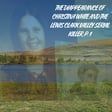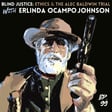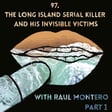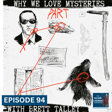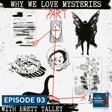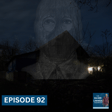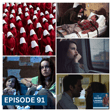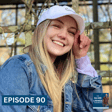
81. Not Missing the Moment with Jason Usry
Jason Ursy joins to discuss his upcoming podcast, "Missing in a Moment," which will tell the stories of the lives and disappearances of missing people in a victim-centered podcast. Jason is a host of the true-crime satire podcast, "Santa, Maybe a Criminal" and "Missing in a Moment" is his first venture into reporting real-life stories. He discusses the differences and similarities between the two endeavors. Jason discusses the emotional risk involved in reporting on victims who are still gone and the people who inspired him on this endeavor. He also in discusses finding his moral compass in true crime and ethics in the space.
Visit our website and follow along with us on Instagram, join our Silver Linings Fireside Chat Facebook group and join us on Patreon.




